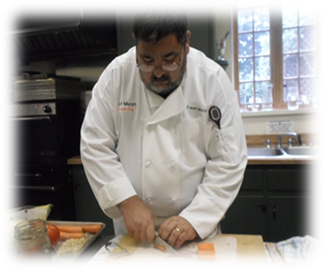By Chef K.T. Murphy
What Can You Eat On A Raw Food Diet:
Many diet crazes have become popular over the past few years, and with the rise of  veganism and vegetarianism, there has been renewed interest in a form of plant-based eating known as a raw food diet. Primarily, this lifestyle choice involves eating all foods in their natural state, or uncooked.
veganism and vegetarianism, there has been renewed interest in a form of plant-based eating known as a raw food diet. Primarily, this lifestyle choice involves eating all foods in their natural state, or uncooked.
Proponents of this lifestyle believe that eating raw food provides your body with needed nutrients and vitamins lost in the cooking process, with the added benefit of consuming healthy fruits and vegetables that are also rich in fiber. The raw food diet is followed by those looking to lose weight while also providing the body with plant-based sources of nutrients in their natural form.
What Raw Foods Can I Eat?
There are many different variations on raw food diets, depending on how strict you want to be as well as your health and fitness goals. Generally speaking, though, a raw food diet consists of whole, plant-based foods never cooked to a temperature over approximately 100°F. Raw food diets primarily consist of fresh fruits and vegetables, nuts, and seeds. What is missing from this lifestyle are processed foods that contain preservatives, cooked ingredients, and added sugars or chemicals.
Preparing raw foods can mean juicing fruits or vegetables, blending ingredients into a smoothie, dehydrating fruits or vegetables, fermenting various foods, or sprouting seeds or grains.
In addition to fruits and vegetables, other common foods in a raw food diet include:
• Raw nuts and seeds;
• Dried fruits;
• Raw legumes or grains that have been soaked and sprouted;
• Nut butters that are minimally processed;
• Nut milks with no preservatives or additives;
• Foods like kimchi and sauerkraut that are fermented;
• Seaweed and other sea vegetables;
• Cold pressed oils like olive and coconut; and
• Sprouts.
There are some who adhere to a raw food diet who choose to consume raw animal proteins, such as eggs or milk. Some raw food proponents consume uncooked seafood or even raw or dried meat. These are choices that each person opting for this lifestyle will have to make based on their needs and the reasons they are choosing this approach to eating.
Why Should I Avoid Cooking My Food?
Cooked and processed foods often contain ingredients that are unhealthy for most people. These unhealthy ingredients include high levels of fat, added refined sugars, too much sodium, refined grains, and alcohol. Processes such as bleaching, pasteurization, boiling, and baking often remove many beneficial nutrients and vitamins from foods. Those who adhere to a raw food lifestyle remain dedicated to keeping these nutrients in their diets by skipping the cooking process altogether to eat foods whole and in raw form.
Are There Concerns with a Raw Food Diet?
Science does not support the notion that solely consuming raw foods is best for our health. While eating a diet rich in fresh fruits and vegetables is a great way to stay healthy, some foods actually benefit from cooking, which makes some nutrients more accessible to our digestive systems.
The primary source of calories in a raw food diet comes from fruits and vegetables, but because most of these are low in calories, you may find you need to eat a lot of them to feel full. Because they are high in fat, there is also a danger of eating too many nuts and seeds for needed protein.
Monitoring your intake of all raw foods will be essential to ensuring your diet meets your nutritional needs. Consider a balanced approach to raw and cooked foods to access all different types of nutrients as well as make some foods easier for your body to digest.
If you are interested in this subject I have written 7 booklets on the subject
All the best
Chef Murph
XoxoX
Tags: Chef K.T. Murphy, chef keith murphy, chef murph, Chef Murph TV, Chef Murphy, Chinese, food, Foodist Networks, Global Fusion Americana, Recipes, What Can You Eat On A Raw Food Diet
